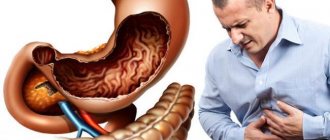A foreign taste in the mouth not only causes discomfort and prevents you from enjoying your favorite food, but also often indicates health problems.
The occurrence of a metallic taste in the mouth is familiar to a large number of people: this sensation is not the most pleasant, but not all of those who have encountered it try to find out its cause. There is nothing wrong with if the iron taste in the mouth appears once, but if it occurs periodically, then the reasons for this phenomenon should be found out.
Quite often you can hear complaints about a metallic taste in the mouth: why does it appear and how to get rid of it?
The reasons that cause an iron taste in the mouth can be very different: when faced with this symptom, you need to try to determine how often it occurs, and whether it is accompanied by any other signs.
First of all, it is worth clarifying what a metallic taste in the mouth is: it is unlikely to confuse this phenomenon with anything else, since it is a pronounced bitter taste with sour notes - a fairly accurate understanding of this taste can be obtained by touching the battery with your tongue . Often the appearance of such a taste is accompanied by an astringent sensation in the mouth and tingling of the tongue (partial numbness is also possible).
Metal taste as a symptom of oral diseases
Patients with gum problems often complain of a strong metallic taste that occurs repeatedly throughout the day. The most popular diseases that provoke such unpleasant sensations include periodontitis and gingivitis, which are accompanied by bleeding gums, and many people describe the taste of blood as metallic. It usually appears during brushing your teeth and after eating. Some patients feel as if there is a foreign body in the mouth, which causes serious inconvenience.
Loose teeth and tartar build-up can also cause a metallic taste. There is no point in trying to independently identify the causes - it is better to immediately contact a dentist.
How to get rid of the problem
If the cause of this is not a symptom of a disease, or a change in physiological state, you can try to eliminate the problem by rinsing with a salt solution (a teaspoon per half liter of water), drinking fruit and vegetable juices. You can chew propolis, ginger root, fresh mint leaves, and add dried spices to drinks.
Brushing your teeth after every meal, using rinses, dental floss for additional cleaning of interdental spaces, brushing your tongue with a special brush - all these measures will help get rid of the unpleasant taste in your mouth. Timely installation and replacement of dentures and dental sanitation can solve the problem.
Why there is an iron taste in the mouth: reasons not related to disease
If you notice an iron taste in your mouth, you should not immediately panic: there is a possibility that the unpleasant sensation is not associated with diseases.
It may appear due to:
- drinking mineral water with salts (often this product is enriched to compensate for iron deficiency in the body);
- drinking low quality drinking water (for example, supplied to the home through old rusty pipes);
- tongue piercing (the sensation appears as a result of the metal reacting with certain foods);
- using cast iron and aluminum cookware when preparing and eating food.
Diagnostic methods
Loss of taste and changes in sensations should lead the patient to a medical specialist. Such violations indicate serious pathological processes that occur in the body. Any taste can be caused by:
- facial paralysis;
- colds;
- infectious process;
- inflammatory process;
- tongue cancer;
- traumatic brain injury.
The doctor first examines the oral cavity, since ulcers and lesions of the mucous membrane can provoke different taste sensations after eating. A specialist can give you a taste of lemon, sugar, and salt. The patient describes the sensations. After this, a series of tests are prescribed:
- checking for otitis media and dental pathologies;
- computed tomography of the brain;
- lab tests;
- Ultrasound of internal organs;
- MRI of the head, etc.
If the taste appears after a specific situation, surgery, nervous stress or injury, then single tests are prescribed. The diagnostic method directly depends on what taste and how often the patient experiences it. The person’s card is also checked; perhaps the taste is provoked by injections, IVs or medications. In this case, the product is replaced with a safer analogue.
Diagnosis comes down to finding the root cause of bad breath. A doctor can determine the disease both after examining the oral cavity and after a series of examinations. The unpleasant symptom disappears in the first days of treatment. During pregnancy, it is either treated symptomatically or is not adjusted.
Medical causes of metallic taste
If a metallic taste appears in the mouth, this may indicate illness. Their list is very extensive. To make it easier to classify, diseases can be divided into two groups: dental and non-dental.
Diseases that lead to a metallic taste, which are systemic in nature and are not associated with teeth and gums, are as follows:
- diseases of the ENT organs (sinusitis, otitis, laryngitis, etc.);
- lung diseases (pneumonia, tuberculosis);
- diseases of the gastrointestinal tract (gastritis, cholecystitis);
- diseases affecting the nervous system (sclerosis, tissue tumors);
- anemia due to deficiency of iron or B vitamins.
It is not uncommon for a metallic taste to accompany diseases that develop in the oral cavity. These include:
- stomatitis (the mucous membrane of the oral cavity becomes inflamed, which is often accompanied by the formation of small ulcers);
- gingivitis (inflammation of the gums);
- periodontitis (the disease appears as a result of advanced gingivitis, when the infection no longer affects the external tissues, but the periodontium);
- glossitis (formation of plaque on the tongue, its inflammation).
Another common cause of taste associated with the oral cavity and dentistry is the installation of crowns and dentures. The appearance of a taste in this case is normal, provided that it goes away within 1-2 months. A sign that adaptation to the structure in the mouth has not occurred is unpleasant sensations in the form of tingling of the tongue, burning, and a feeling of dryness.
The mechanism of the appearance of taste sensations
It is not always easy for even doctors to determine the cause of the taste in the mouth.
Special receptors, mostly located on the papillae of the tongue, are responsible for the sensation of taste in humans. A few receptors are located on the palate and back of the pharynx. All of them are sensitive to several dozen different tastes and their combinations.
Taste sensitivity, like an ear for music, is individual for each person; it can be developed and improved, achieving the ideal taste, like tasters or sommeliers. Despite individual differences, the sensation of the five basic tastes: salty, sweet, sour, bitter, and the taste of meat products is accessible to absolutely everyone.
When a product hits the taste buds, the sensations they receive travel through nerve fibers to the brain. A full sensation and perception of taste is impossible without its combination with smell.
When abnormal sensations such as a metallic taste appear, occurring suddenly, without any apparent connection or cause, it is necessary to find out the etiology of this symptom in order to correct your condition, especially if such sensations occur regularly.
How to identify the cause of a metallic taste in the mouth
Only a doctor can identify the correct medical causes and figure out why a metallic taste appears in the mouth after conducting appropriate studies and tests, so you should not hesitate to visit medical specialists.
Measures to identify the cause of unpleasant sensation in the mouth:
- biochemical and clinical blood tests to determine the level of various substances in the body (for example, if hemoglobin is low, this may indicate the development of anemia, a high creatinine level indicates kidney disease);
- a detailed dental examination, during which the general condition of the teeth and gums is determined;
- hormone level test;
- X-ray (used both in case of suspected diseases of the gastrointestinal tract and in the dental field);
- MRI, gastroscopy and various other methods depending on the type of disease detected.
Treatment
Help before diagnosis
To reduce the metallic taste, it is recommended to carefully monitor hygiene: brush your teeth at least 2 times a day, use a toothpick or dental floss after each meal, and rinse your mouth with water. To overcome the disturbing taste, you can add spices with a strong aroma to food - cinnamon, cardamom, pepper. If there are metal utensils in the house, it is advisable to replace them with glass or ceramic ones.
If you have a strong metallic taste, doctors advise eating a mint candy or a slice of orange and rinsing your mouth with water and lemon juice. You should not use medications uncontrollably, as they often leave a “iron” aftertaste. If taste disturbances are combined with nausea and vomiting, abdominal pain and general malaise, you should seek medical help as soon as possible.
Conservative therapy
The drug treatment regimen is selected depending on the cause of the metallic taste in the mouth. In most cases, etiotropic drugs are prescribed that eliminate the underlying disease, and local rinses are used for local lesions of the oral cavity. The most effective medications are:
- Iron supplements
. Medicines eliminate microelement deficiency in the body and successfully eliminate the manifestations of anemia. The course of treatment is at least 1 month, then iron is taken in low doses for another 2-3 months. For other types of anemia, vitamin B12 and folic acid supplements are recommended. - Antisecretory agents
. They reduce the production of hydrochloric acid in the stomach and normalize digestive function, due to which the metallic taste disappears. The most effective drugs are from the group of proton pump inhibitors; H2-histamine blockers are also used. - Corticosteroids
. Medicines are used to treat renal pathology as a common cause of uncomfortable taste sensations in the mouth. They have a pronounced anti-inflammatory effect, reduce damage to the renal tubules by circulating immune complexes and autoantibodies. - Antibiotics
. The drugs are prescribed for massive bacterial processes in the oral cavity, exacerbation of sinusitis and purulent bronchitis. Antibiotics are taken in tablet form for 7-10 days; for severe pyelonephritis, intravenous administration and a combination of 2 drugs are indicated. - Complexons
. They are chelate compounds that, when ingested, bind and neutralize heavy metals. They must be administered as soon as possible after poisoning. The drugs are combined with massive detoxification therapy with saline and colloid solutions.
Metal structures in the mouth
After installing braces and crowns, dentists warn patients about the possible appearance of a metallic taste - this is a normal phenomenon that should subside within a week after the procedure. If this period has passed, and discomfort still makes itself felt, the reasons may be as follows:
- allergy to metal. It is very rare, but taking an allergy test will not be superfluous. If the suspicion is confirmed, the only solution will be a complete replacement of all installed structures;
- galvanism (interaction between metals), which occurs in the case of installation of orthopedic structures made of different materials that interact with each other. If all the crowns and posts are made of the same material and the amalgam fillings are replaced, the problem will disappear.
If you have metal dentures or implants, an iron taste may become noticeable after consuming acidic foods and drinks. Accordingly, the presence of piercings on the tongue or lips can also cause a similar effect.
Metallic taste in the mouth of people of different sexes
A number of reasons that cause the sensation of metal are divided by gender.
For men who work in mining or in industries that use heavy metals, an iron taste may appear during each shift and disappear after the end of the shift. Long-term wearing of massive metal objects (bracelets, watches) also leads to a similar result, since during prolonged contact with the skin the concentration of ions entering the blood through the pores becomes too high.
Women may experience a metallic taste due to:
- pregnancy. Many expectant mothers note that a metallic taste periodically appears during pregnancy. Why does this happen? Firstly, the matter may be a lack of microelements and vitamins, and secondly, changes in hormonal levels and malfunctions in the functioning of receptors that recognize taste can be to blame;
- the use of weight loss drugs and various biological additives, which often leads to poisoning due to incorrect dosages and the desire to quickly get the most pronounced result possible;
- insufficient amount of fluid consumed (women resort to this remedy to lose weight and get rid of swelling). A metallic taste is one of the signs of dehydration.
It is best to start combating this not very pleasant feeling by visiting a doctor who will prescribe the necessary tests and examinations. Otherwise, you can look for reasons on your own and continue to experience discomfort regularly for a very long time.
Causes of taste disorders
A violation of taste makes it clear about the pathological processes that occur in the body. Often the cause can be serious injuries or latently developing diseases. In addition to taking medications and basic causes, this is how severe pathologies manifest themselves.
| Cause | Description | Mouth sensation |
| Fracture of the base of the skull | Disruption of the functioning of various organs and systems of the body. Accompanied by nausea, fainting, noise and pain in the head. | Metallic Bloody Ammonia |
| Oral Oncology | Tumors that disrupt the functioning of receptors. The pathology develops with damage to taste perception. | Purulent Moldy Ammonia |
| Sjögren's disease | The activity of the salivary glands and taste buds decreases. Accompanied by cough, pain, inflammation of the pharynx, pressure. | Bloody Metal |
| Purulent lesions of the larynx | Development of ulcers, inflammations with purulent processes. It often occurs against the background of rising temperature. | Purulent Moldy Almond |
| Thalamic pain syndrome | Damage to the thalamus, causing a violation of taste perception. | Salty Sweet Sour Bitter |
| Hepatitis | The functioning of the receptors is disrupted only in the acute form. Accompanied by pain and inflammation. | Ammonia Metallic Bitter |
| Candidiasis | Fungal infection of the oral cavity. There is a thick white coating on the palate, tongue, lips and gums. | Purulent Sweet Moldy |
Delaying a visit to the doctor for a long time leads to the development of the disease into a chronic form. The only exception is a one-time taste, when nothing hurts against its background, there is no cough, sputum or coating on the tongue. It is impossible to diagnose pathology by the taste of saliva on your own.
Types of violations
Symptoms come in different etiologies and are provoked by pathologies and disorders. They often occur due to poor oral hygiene, poor diet, alcohol abuse or smoking. Partial loss of taste and the presence of aftertaste can be dictated by:
- Ageusia
. With severe damage to the nervous system, hormonal disruption occurs. Taste buds do not perceive food “correctly.” Often the opposite sensations are projected. Sweet foods taste salty and vice versa. - Hypogeusia
. Due to infectious and fungal diseases, the sensitivity of the tongue decreases. Taste sensations are more difficult to distinguish. Occurs when taking strong antibiotics, or with mechanical damage to the tongue. - Dysgeusia
. Erroneous taste recognition. Due to disturbances in the functioning of receptors, sugar seems salty, lemon tastes bitter. Against the background of hormonal imbalance, it often occurs in pregnant women and is temporary.
Neuritis, damage to neurons, can lead to complete loss of taste. Abnormalities of the thyroid gland provoke the same effect. In addition to taste, smell is lost. The patient feels similar sensations during strong anesthesia during tooth extraction.
Additional Information
You can avoid the sensation of blood, paint, and ammonia in your mouth by following basic rules. It is important to maintain oral hygiene, not take medications unless prescribed by a specialist, and visit the dentist regularly. Treatment of chronic pathologies will allow you to avoid unpleasant symptoms.
If an unpleasant taste and odor from the mouth is accompanied by dizziness, pain, or nausea, then immediate consultation with a doctor is required.
A persistent taste indicates serious chronic disorders. In pregnant women, tastes may indicate hormonal changes. They are usually temporary and do not require specialist intervention. If the feeling occurs only after eating, then you should spend more time on hygiene and visit the dentist.
A nutritious diet and regular preventive examinations minimize the risk of an unpleasant taste. If the sensations are accompanied by any additional symptoms, then they are part of the pathological process.










